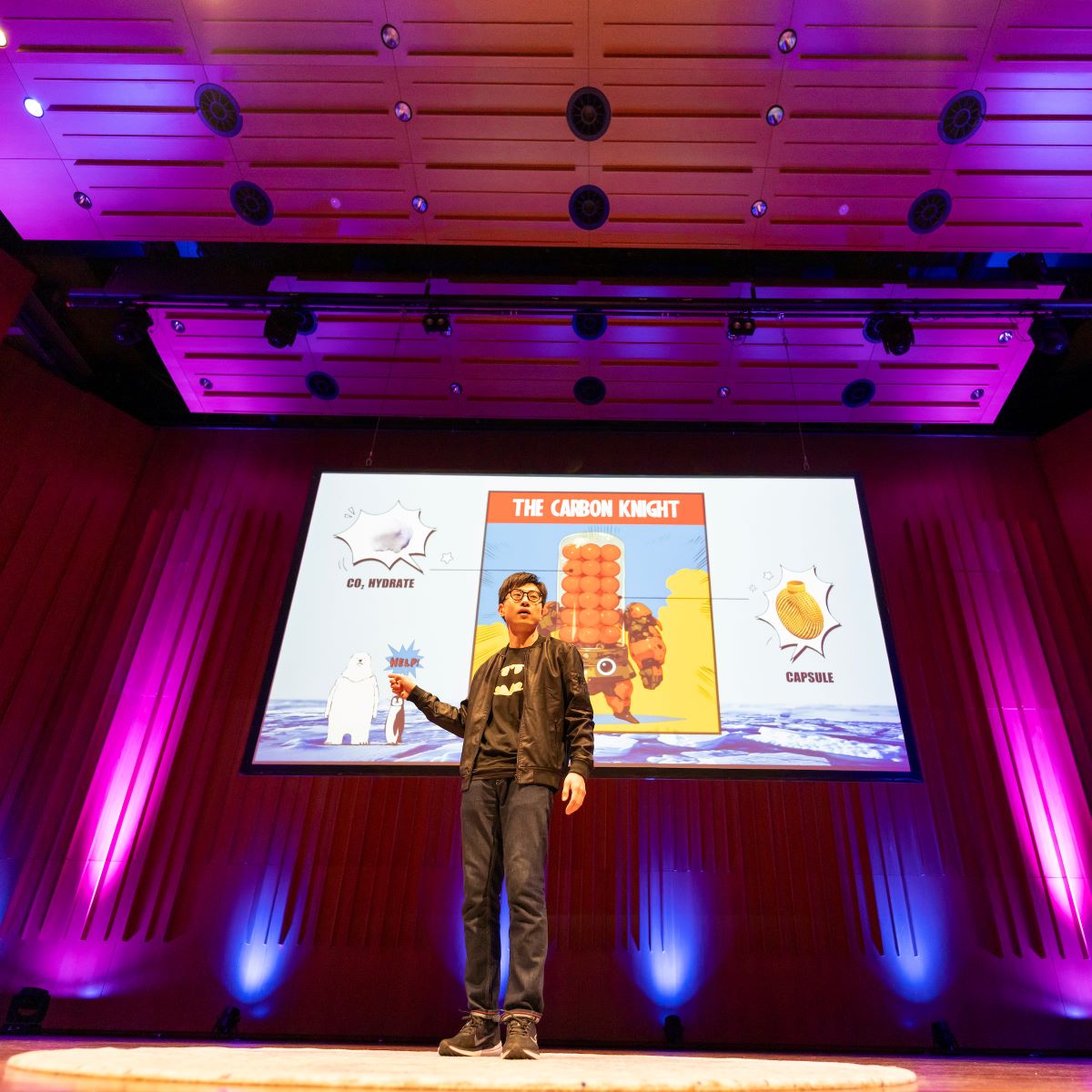The Three Minute Thesis (3MT) competition has become a hallmark of the academic calendar, challenging PhD students to distil their complex research into compelling three-minute presentations. Participants present to non-specialist audiences, giving insight into their research and its importance, using only a single PowerPoint slide.
The idea for 3MT was conceived during a severe drought in Queensland, Australia. To conserve water, residents were encouraged to time their showers, often using three-minute egg timers. Inspired by this practice, Emeritus Professor Allan Lawson, the then Dean of the Graduate School at the University of Queensland, proposed a similar time constraint for PhD students to present their research succinctly.
Today, 3MT events are held at over 900 universities in more than 85 countries, emphasising the competition’s widespread appeal and impact.
This year’s finals at CECC brought forth an array of amazing presentations and the lead-up to the results was truly nail-biting.
And the winner is..*drumroll*
Richard Zhang from the School of Engineering was crowned the overall winner as well as the People’s Choice! His invention, “The Carbon Knight” is our knight in shining armour when fighting climate change. This tech uses capsules with breathable membranes to convert CO2 into a solid, safe substance. Richard emphasised the importance of scalable and adaptable solutions to address high carbon emissions, presenting a hopeful vision for mitigating climate change.

Treading similar lines of a sustainable future, Gabriel Bartholazzi’s presentation on solar panel efficiency placed second in the competition. His research involves designing better pathways or in Gabriel’s words ‘roads’ for free electrons, using novel materials. Much like excited tourists on a vacation without an itinerary, free electrons generated when the sun hits our solar panels have nowhere to go. Gabriel’s research uses certain novel materials to build better “roads” to guide these free electrons in a cost-effective way, making solar panels more efficient and facilitating a sustainable future.
Final destination: Not Mars
While most of our presenters are seeking to solve problems on Earth, Swapneel dreams of solving those that are on the way to space. Swapneel Roy presented his research on developing an onboard device for spacecrafts, that uses a laser-based technique with the ability to measure velocities more than ten times the speed of sound. His out of the world research scored third place in CECC’s 3MT Finals.
Swapneel highlighted that roughly 60% of spacecrafts destined for Mars fail before they ever reach their destination, and this is often due to the inability to read and respond to local conditions like wind speed. His method, which uses the Doppler effect, offers precise, non-intrusive and faster measurements of wind speed than previously achieved, addressing a critical challenge in Mars missions.
A hypersonic shock tunnel facility has been built at The Australian National University to test his proof of concept. With a current test runtime of just one millisecond, he must achieve his measurements within the first 300 microseconds, highlighting the precision and challenges behind his work.

With growing populations, the scarcity of freshwater is increasing at an alarming rate. With current methods of desalination proving to be expensive and energy-intensive – Shuqi Xu from the School of Computing is currently working on an innovative desalination method, that is both inexpensive and sustainable.
Her multichannel device, which operates at temperatures below 60°C and requires less than 1% of the electricity needed for reverse osmosis, offers a cost-effective and energy-efficient solution. Shuqi’s research holds great potential for addressing freshwater scarcity using sustainable and accessible technology.
In addition to the winning presentations, the competition featured other impressive presentations, with academic staff also taking on the three minute challenge.
Jessica Herrington from the School of Cybernetics presented her research on visual texture perception, with potential applications in early detection tests for Parkinson’s disease. Her studies involved individuals with Parkinson’s disease, revealing specific impairments in texture perception despite normal visual capabilities for other tasks.
ANU 3MT grand final
The Three Minute Thesis competition not only highlights the brilliant work of PhD students but also underscores the importance of effective science communication.
The People’s Choice Award was narrowly won by Richard Zhang from the ANU College of Engineering, Computing and Cybernetics (CECC).
Congratulations also to Sasanan Trakansuebkul from the John Curtin School of Medical Research (JCSMR) who took home the top prize for her stellar presentation. She competed against nine other finalists across ANU to advance to the Asia-Pacific Semi-Final Showcase.

